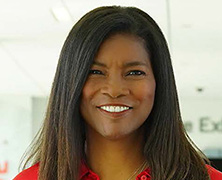The Importance of Saying “Yes”
I am the daughter of educators. My parents and grandparents instilled in me the importance of a good education. As I was completing my undergraduate degree at the University of Florida, College of Journalism, I was undecided about my career aspirations. A friend of mine suggested I consider teaching for a year until I was more certain of the path I wanted to take.
I had sworn I’d never teach, not because I didn’t value the profession, but because I saw firsthand how demanding the role could be for not a lot of money. But, I decided to pursue it anyway. I was hired to teach middle-grade students in an inner- city school in Miami, Florida. My students were Black/African American, Puerto Rican, and children of immigrants from Cuba, Haiti, Columbia, and the Dominican Republic. And they were poor.
One afternoon midway through the school year, I paused the lesson and had a conversation with my students. By then, I had developed a caring relationship with them, and I had gotten to know their parents through many conversations. That afternoon I asked my students what they aspired to be when they grew up. As is typical of 11-year-olds, the boys wanted to be firemen, police officers, and professional athletes. The girls wanted to own beauty salons, or become dancers or actresses. Then I arrived at the last student, Anneris. I can still see her face. She was smart, beautiful, and reserved; and she was popular among her peers. When I asked Anneris what she wanted to be, she said quietly, “I want to be a doctor.”
She said it as though she was embarrassed to have a dream so big, considering she was a child of immigrants surrounded by poverty in her community. I was overcome with compassion. I looked into the faces of my students, and I knew in that moment, I was not there by chance. I was supposed to be there. My students had the same dreams as any child their age, but I knew they would face more hurdles as black and brown children growing up in a poor, under-resourced school and community.
That experience impacted me profoundly. I wasn’t sure about my future career path, but I knew whatever I did, it would involve helping people to believe in themselves, remove psychosocial and structural barriers, and accomplish their goals and dreams. I knew I wanted to help create a more equitable society. I’ve built a career doing this very work inside corporate systems and in society at large. My career as a talent development and diversity, equity, and inclusion leader is rewarding, and it all began when I said, “Yes,” to a teaching position in inner-city Miami.







